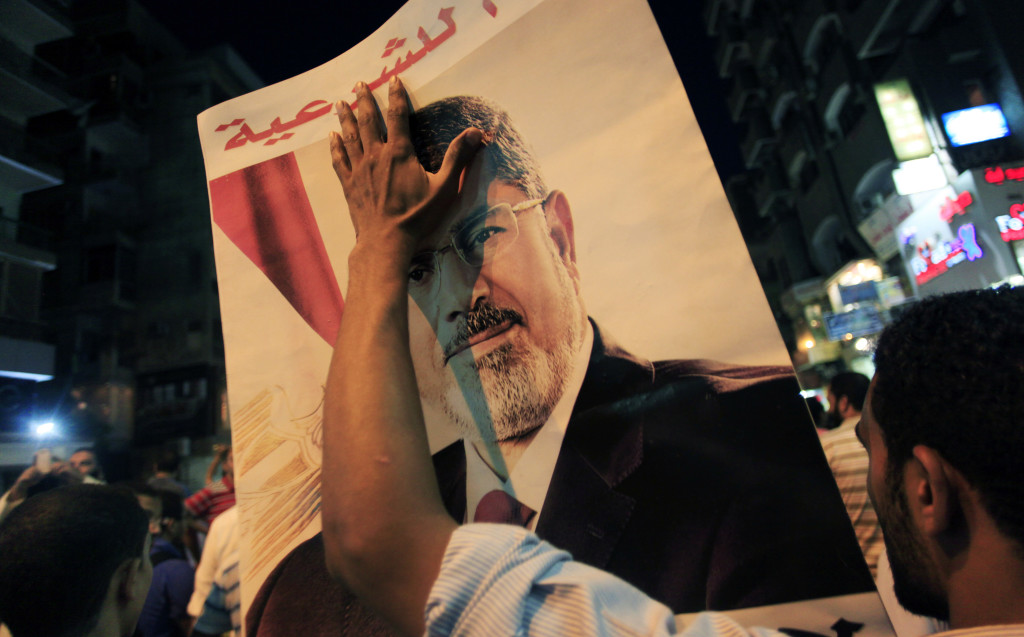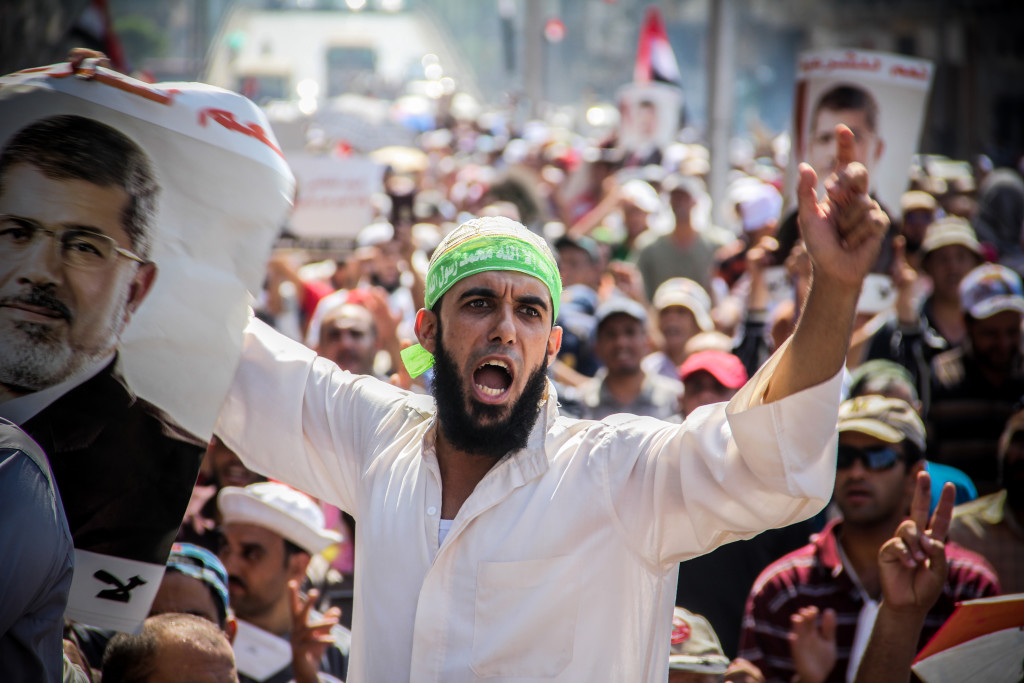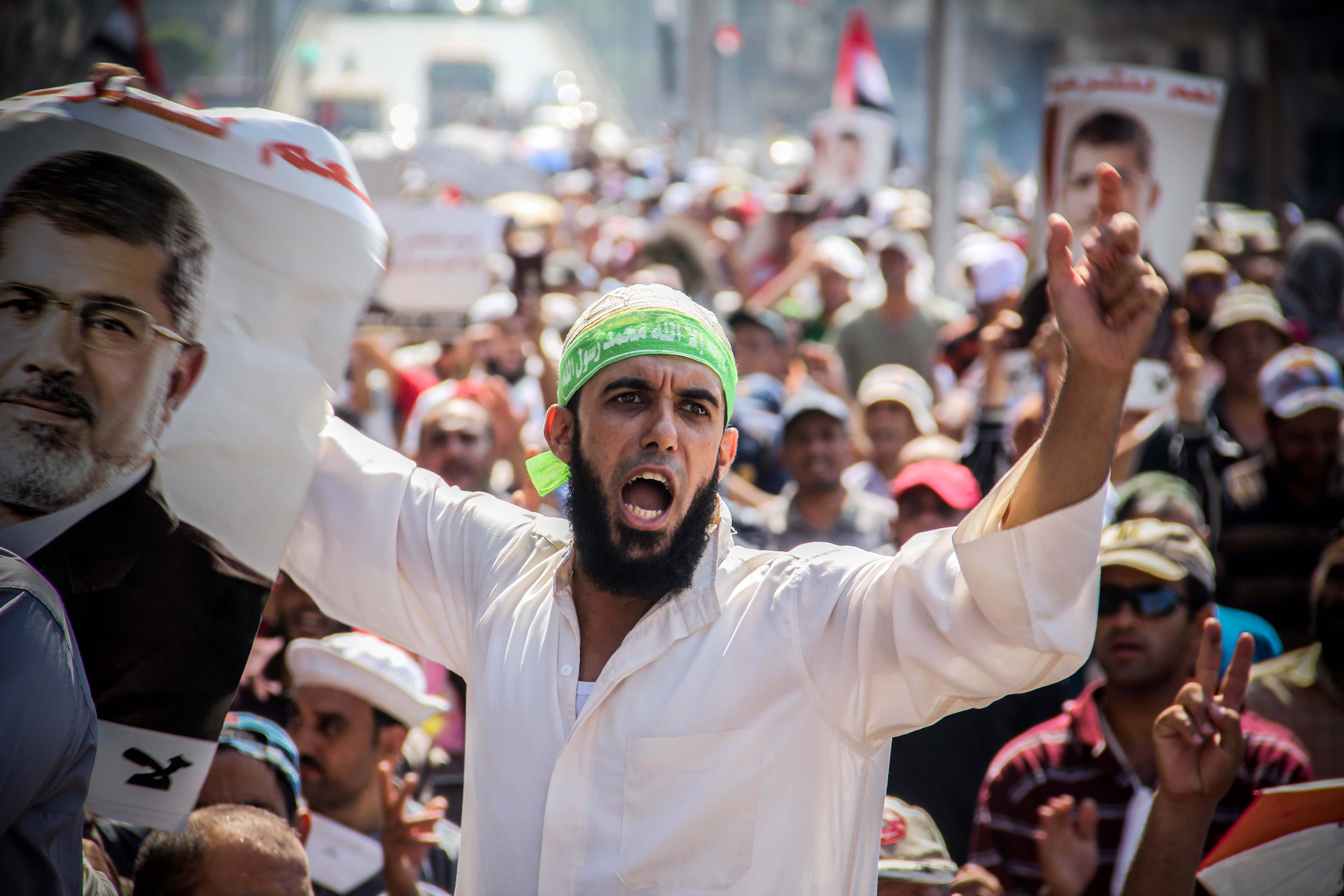Egypt Bans Muslim Brotherhood Activity, Freezes Funds

September 23, 2013
Share
The military-backed Egyptian government took another step in its aggressive crackdown on the Muslim Brotherhood on Monday, banning the group from carrying out activities and ordering that its funds be seized.
As we reported in Egypt in Crisis, the military has been waging war against the Muslim Brotherhood since it overthrew President Mohammed Morsi, a member of the group and Egypt’s first democratically elected president, on July 3.
Protests against the new regime were brutally crushed, most notably on Aug. 14, when security forces killed at least 600 people and wounded thousands more in an attack that lasted for more than 12 hours.
The new regime has arrested hundreds and is holding an estimated 2,000 Brotherhood members, according to security forces. Morsi himself has been charged with “inciting killing.” On Sept. 17, a young, new Muslim Brotherhood spokesman, Gehad el-Haddad, was arrested and charged with similar crimes, just a few months after he was interviewed by FRONTLINE. He’s been taken to Tora prison outside Cairo, which is run by the Ministry of Interior and used for torture.
Back in July, El-Haddad suggested he hoped that Egyptians would rally against the military takeover.
“At some point in time the Egyptian people, we think, will say: ‘That’s enough. The military has to go out.’ If they do, they will flock to the streets. They will bring the country to a halt,” he said.
He added: “If they don’t, well, we have died silently, but we died on principle.”
There has been little sympathy for the Brotherhood among the revolutionaries and secular Egyptians who backed both military takeovers.
The Muslim Brotherhood was reluctant to protest the military’s initial crackdown on protesters in 2011, when revolutionaries were taken to the Egyptian museum and tortured. The Brothers also were slow to object when Coptic Christians were murdered during a peaceful protest calling for the military to protect them from persecution by militant Islamists.
Once in power, Morsi failed to press for constitutional amendments banning torture, or for accountability for the acts security forces had already committed.
Morsi’s supporters argued that he was blocked by the military from effecting real change. Either way, his inaction fueled anger against the Brotherhood and a willingness to support a military crackdown against its members.
“There really did seem to be a desire to just wipe them off the political playing field,” Ashraf Khalil, an independent Egyptian journalist, told FRONTLINE, after Morsi was overthrown.
Monday’s ruling was handed down in court in response to a petition filed by a liberal political party. “The court bans the activities of the Muslim Brotherhood organization and its non-governmental organization and all the activities that it participates in and any organization derived from it,” the judge, Mohammed al-Sayed said.
The ruling didn’t include a prohibition on the Muslim Brotherhood’s political group, the Freedom and Justice Party. But with so many members arrested and their arrests frozen, the move marks an effective ban on political organization as well.

Related Documentaries
Latest Documentaries
Related Stories
Related Stories
Explore
Policies
Teacher Center
Funding for FRONTLINE is provided through the support of PBS viewers and by the Corporation for Public Broadcasting, with major support from Ford Foundation. Additional funding is provided the Abrams Foundation, Park Foundation, John D. and Catherine T. MacArthur Foundation, Heising-Simons Foundation, and the FRONTLINE Trust, with major support from Jon and Jo Ann Hagler on behalf of the Jon L. Hagler Foundation, and additional support from Koo and Patricia Yuen. FRONTLINE is a registered trademark of WGBH Educational Foundation. Web Site Copyright ©1995-2025 WGBH Educational Foundation. PBS is a 501(c)(3) not-for-profit organization.





















